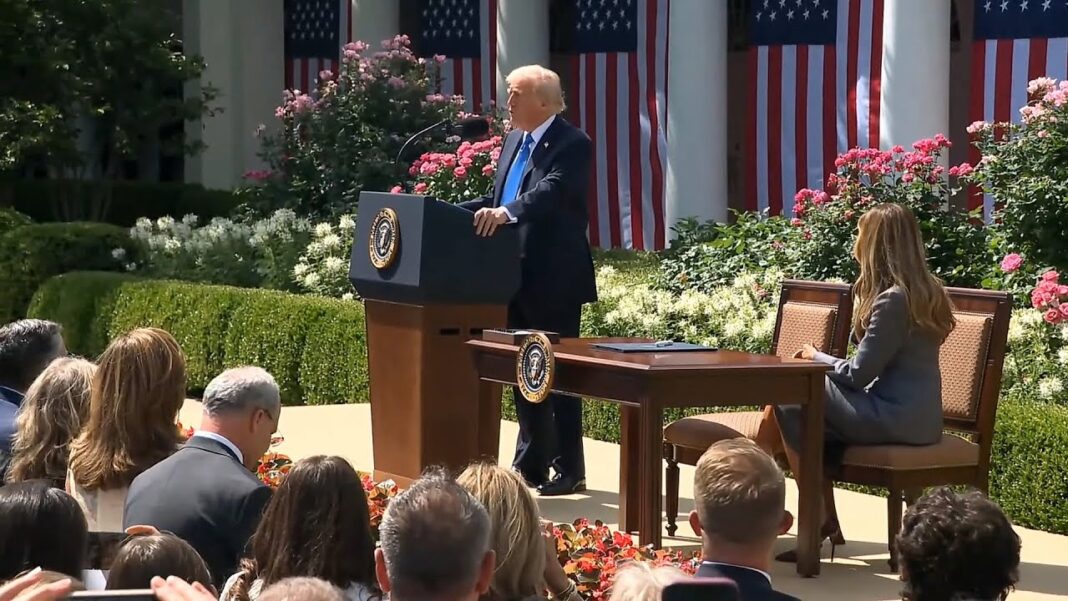As Congress struggles with Budget Reconciliation, a $37 trillion National Debt, a trillion-dollar annual deficit, a seemingly endless list of untouchable programs, a President intent on enacting his “Big Beautiful (tax) Bill,” and slashing the federal government by Executive Orders, what was once unthinkable is now taking the first steps to inevitability. Congress and the President may not be using the term “Devolution of Power” to the states, but the federal and state governments are on a journey in that direction.
While most of the countless policy issues being addressed are merely modifications of tired solutions, a few unique ideas are surfacing that may change the debate over time by providing practical solutions to the overall federal quagmire of running a government that costs more than the nation can afford.
The Sale of unappropriated western federal lands.
The federal government owns 620 million acres of land in the U.S., about 27% of the land mass. These lands are primarily in the western part of the country. Last year, Utah sued the federal government for the return of the unappropriated federal lands, which comprise 35% of the state. The U.S. Supreme Court decided not to hear the case until a record was developed, however, before the case could make it through the courts, the House Natural Resources Committee as part of its review of Trump’s “Big Beautiful Bill,” adopted an amendment that would authorize the sale of the public lands in Utah and Neveda.
The proceeds from the parcels would be used for housing, mining, energy production, and to pay for the President’s tax cuts. While the subject lands represent less than a percentage of federal land ownership, the sale starts the process of returning public lands to the states. These sales would relieve the federal government of its land management costs, and help pay down the national debt, while allowing states to use the land for economic development and taxation.
Selling a percentage of the oil, gas, and mining assets to pay off the national debt.
The federal government owns many valuable assets, including buildings, roads, rail infrastructure, dams, energy facilities, and its largest asset, student loans, to name a few. While these assets have value in the $5 trillion range, the more valuable assets are underneath the land and its waters. The federal government owns approximately 755 million acres of onshore surface and mineral estates and 1.76 billion acres of offshore land and mineral rights. The federal government has not completed an audit to determine the value of these assets. The Institute for Energy Research estimates that the technically recoverable oil and gas reserves have a value of $128 trillion.
President Trump has ordered Secretary of the Interior Bergum to undertake an inventory of the wealth under U.S. lands as part of his ‘Drill baby Drill’ campaign. This campaign, which aims to maximize the use of the country’s natural resources, could potentially unlock significant economic value. Secretary Bergum estimates that the 500 million acres under the Department of the Interior’s jurisdiction could be worth between $100 and $200 trillion.
A sale of a portion of these federal lands would pay off the $37 trillion national debt. Eliminating the current trillion-dollar annual interest payment on the national debt would reduce taxes for all Americans. Other options could also be considered, such as revenue sharing with the states so that they could take over many of the federal domestic programs. This would allow the federal government to focus on national defense, international, and truly interstate issues.
Enhance K-12 education by allowing the money to follow the student.
Currently, the state, local, and federal governments appropriate sufficient funds for education to give every student in the nation a scholarship to attend the school of their choice. President Trump recognizes that school choice improves student scores and has directed his Department of Education to devise a mechanism to return the power over education to the state and local governments.
The state of Indiana’s school voucher program proves school choice works. Since starting its program in 2022, its eighth-graders have increased their placement on the National Assessment of Educational Progress from 19th to sixth in the nation. The state’s fourth graders also rose from nineteenth to sixth place. On a more limited basis, other states are finding the same results.
Refusing to cooperate with federal laws, Utah enacts a sovereignty act, and Texas is following.
As the states grow weary of federal mandates, they search for mechanisms that allow them maximum freedom within a federally controlled union. Since the first Trump administration, states and local governments have resisted federal immigration and enforcement efforts. The Trump 47 administration is now attempting to withhold federal funding from these sanctuary jurisdictions. Sixteen cities and counties have sued the Trump administration over his Executive Order that seeks to withhold funds for not cooperating with federal officials. The states argue the Trump administration is attempting to illegally force the sanctuary jurisdictions to enforce federal immigration policy, which the Constitution prohibits, since the federal government cannot commandeer state resources. A federal court in San Francisco enjoined federal enforcement.
Utah is taking a similar but broader approach to resisting what it believes are unconstitutional federal mandates. “The [Utah] Legislature may, by concurrent resolution, prohibit a government officer from enforcing or assisting in the enforcement of a federal directive within the state if the Legislature determines the federal directive violates the principles of state sovereignty.”
Texas is following Utah’s lead. The Texas House has passed a Sovereignty Act that sets up a process similar to Utah’s approach. If enacted, this act could significantly shift the balance of power between the federal and state governments. By refusing to implement federal laws that the citizens of a state do not want, the respective states would free up personnel and funding for state programs that their citizens want. Conversely, Congress will be forced to prioritize federal mandates since it may have to fund them, if it wants them enforced.
Utah and Texas’ constitutional authority rests on the fact that the federal government cannot commandeer state agents to enforce federal laws, the same reasoning asserted by the sanctuary states. The federal government will soon need to accept this limit on its power.
After the first steps.
Selling off or returning western lands to the states, using federal resources to pay down the national debt, returning education to the states, and recognizing that the federal government cannot force states to use their resources to enforce federal law, is the start of the restructuring of a federal government that is too big to manage. This restructuring is guided by the principle of federalism, which advocates for the distribution of power between a central authority and constituent units. By limiting federal power to defense, international, and truly interstate matters while allowing the states to manage many of the nation’s domestic affairs, Congress will restore the limited government envisioned by our founders.
William L. Kovacs, author of Devolution of Power: Rolling Back the Federal State to Preserve the Republic. It received five stars from Readers’ Favorite. His previous book, Reform the Kakistocracy, received the 2021 Independent Press Award for Political/Social Change. He served as senior vice president for the U.S. Chamber of Commerce and chief counsel to a congressional committee. He can be contacted at wlk@ReformTheKakistocracy.com







